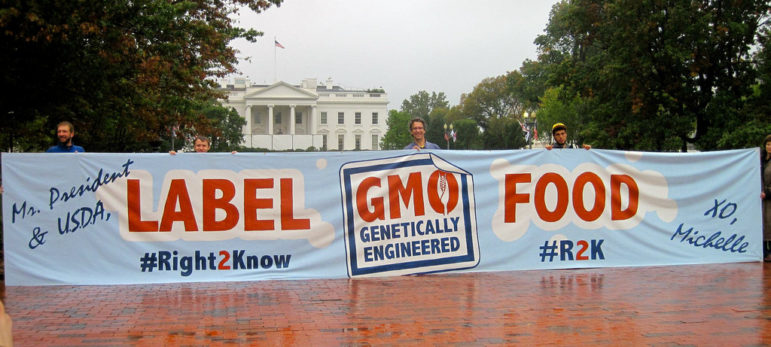
June 25, 2015, The Christian Science Monitor
A GMO labeling law that passed the Vermont legislature in 2014 will go into effect this Friday, July 1. The law, titled Act 120, requires that food products with genetically modified ingredients carry a label stating as such. Some food and farm advocacy groups—such as Rural Vermont, which has a core purpose of going against corporate agriculture to protect local farms—are planning celebrations.
The law has been years in the making. State legislator and organic farmer David Zuckerman introduced bills addressing GMOs back in the 2000s. One of those laws, which requires seed manufacturers to report the quantity of their products sold in Vermont, passed. Another law, geared toward holding companies that conduct genetic engineering liable for any economic or environmental harm, passed but was later vetoed by the governor. Vermont leads the way in the GMO labeling movement, in part because it has more farms and farmers per capita than any other state.
Sign up for our free newsletters
Subscribe to NPQ's newsletters to have our top stories delivered directly to your inbox.
By signing up, you agree to our privacy policy and terms of use, and to receive messages from NPQ and our partners.
The discussion over the impact of GMOs on the nation’s food supply and environment is one governed by passion. There is not a lot of evidence on either side that definitively places GMOs in the negative or positive category. Surveys show that 90% of the population supports GMO labeling so that we can be fully aware of what we are consuming. Yet, those in support of GMOs claim that they help to address worldwide hunger issues. It should also be noted that GMOs have allowed us to enjoy the benefits of vaccines, insulin, and other medicines. Even in Vermont, not all farmers are in favor of Act 120—some are concerned that the new law could increase their expenses for feeding livestock and others are concerned that if they have to label their foods, they may lose contracts to food suppliers who are currently GMO free.
In response to such concerns, Senators Pat Roberts (R-KS) and Debbie Stabenow (D-MI), who both serve on the Senate Committee on Agriculture, Nutrition and Forestry, have introduced opposing legislation that would stop Act 120 in its tracks. This legislation would not only nullify Vermont’s GMO labeling law but also prevent other states and cities from implementing their own. In addition, this legislation would allow companies to simply add a toll-free number, website, or QR code to the label for consumers to learn more about GMOs contained in the food product. Both senators claim that Vermont’s Act 120 puts a black mark on biotechnology and that placing GMO ingredients on the food label would be confusing for consumers.
As Friday approaches, some food manufacturers, including PepsiCo and Campbell Soup Co., have already implemented the Vermont labeling laws to produce the labels on their products nationwide. Some of the smaller food products under the Coca-Cola brand may be temporarily unavailable to Vermont consumers as the company works to comply with the labeling laws.—Kelley Malcolm













